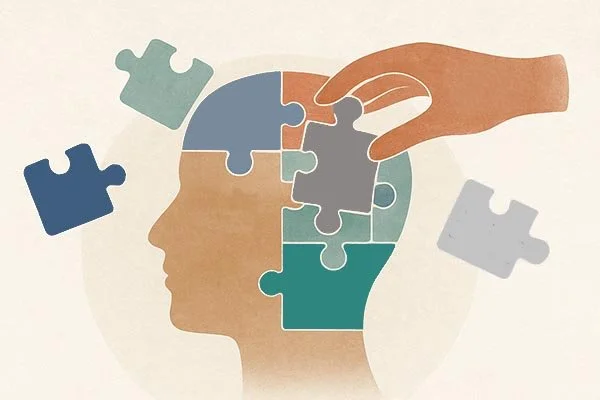
Schema Therapy –
Transforming Deep-Rooted Patterns for Lasting Change
Heal the Wounds That Keep Repeating Themselves
We all carry patterns—deep emotional themes that shape how we relate, cope, and respond in relationships. Some of those patterns are helpful. Others were formed in the middle of pain and keep leading us to more of it.
Schema Therapy helps you identify and change the emotional habits that were wired in early relationships but continue to play out today. Whether you find yourself people-pleasing, avoiding conflict, numbing out, overcompensating, or constantly seeking validation—you’re not broken. You’re likely operating from an unhealed schema.
At Insights, we use Schema Therapy to help you name the messages that shaped you, meet the younger parts of you that still carry those wounds, and develop a healthier, more grounded way of responding—one that honors your needs, protects your peace, and deepens your capacity for connection.
What Are Schemas?
Schemas are deeply rooted emotional beliefs and relational templates formed in childhood or early life experiences. They become the “storylines” we live out—often without realizing it.
Common examples of schemas include:
Abandonment – Fear that others will leave or not be there when you need them
Defectiveness/Shame – Belief that you are unworthy of love or fundamentally flawed
Subjugation – Feeling you must suppress your needs to avoid conflict or rejection
Unrelenting Standards – Constant pressure to perform, achieve, or be perfect
Mistrust/Abuse – Expectation that others will hurt, use, or deceive you
These schemas are not just thoughts—they’re emotional filters. They affect how you interpret what others say, how you treat yourself, and how you respond in stress or intimacy.
Curious About What’s Underneath?
Let’s Explore Together.
“Rebuild your inner world. Relate from a place of wholeness.”
Why Schema Therapy Works
While many forms of therapy focus on symptoms or surface behaviors, Schema Therapy goes to the root. It combines elements of cognitive, experiential, interpersonal, and behavioral therapies to bring healing at the source of the pain—not just at the point of impact.
You’ll learn how to:
Recognize and understand your schemas
Identify “modes” (parts of self) that show up when a schema is triggered
Develop your Healthy Adult mode—a strong, wise, compassionate self that can lead with clarity
Reparent the younger parts of you that needed something they didn’t get
Create new relational patterns that feel safe, respectful, and empowering
Recent Posts
What to Expect in Schema Therapy at Insights
Your therapist will begin by helping you map out your schemas and identify which “modes” (like the Vulnerable Child, Angry Protector, or Detached Self-Soother) tend to take over. From there, therapy becomes a deeply relational and structured space to help you shift from painful reenactments to healing responses.
Schema Therapy is especially effective for individuals or couples who:
Have experienced childhood emotional neglect, trauma, or enmeshment
Find themselves stuck in repeating patterns in relationships
Struggle with intense shame, fear of abandonment, or self-sabotage
Have difficulty regulating emotions or maintaining boundaries
Feel like parts of them are “in conflict” internally or in their marriage
We also use Schema Therapy in combination with other approaches—including Gottman Method, EMDR, Brainspotting, and sex therapy—to address complex relational dynamics, betrayal trauma, or chronic emotional pain.
A Relational Approach to Healing
At Insights, we don’t just help you understand your schemas—we help you transform them. Our therapists are trained to work compassionately with the parts of you that carry the most pain and guide you toward deeper self-trust, emotional resilience, and meaningful connection.
Whether you’re healing from past wounds or trying to build new relational patterns, Schema Therapy offers a path forward. One that doesn’t bypass your pain, but instead helps you face it with clarity, courage, and care.
Ready to Begin?
If you find yourself saying “Why does this keep happening?” or “Part of me knows better, but I still react this way,” Schema Therapy might be the missing link.
You’re not too much. You’re not too late. And you’re not alone.
Let’s work together to rewrite the story.








